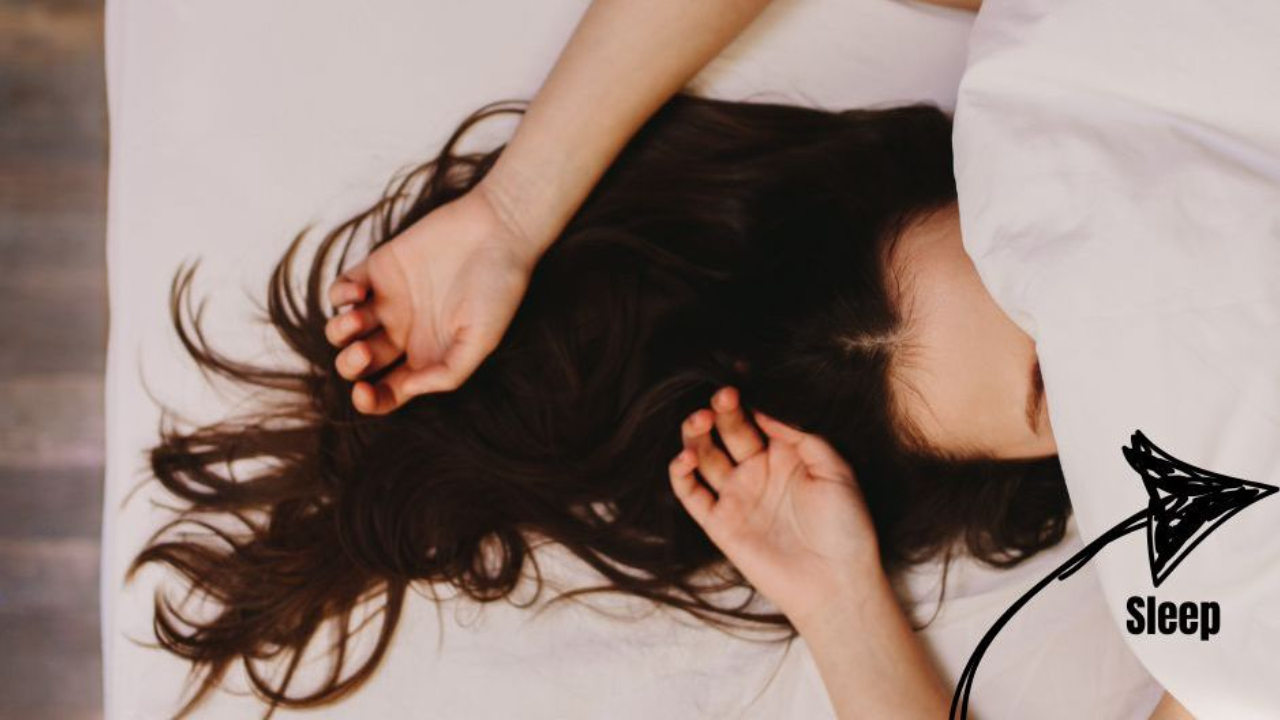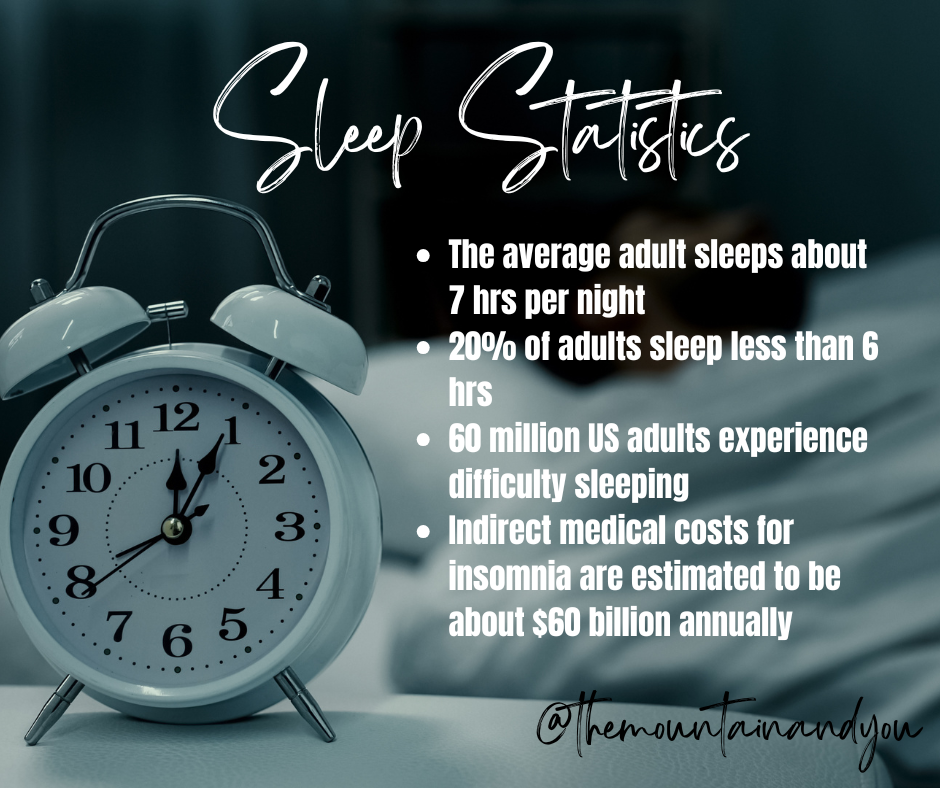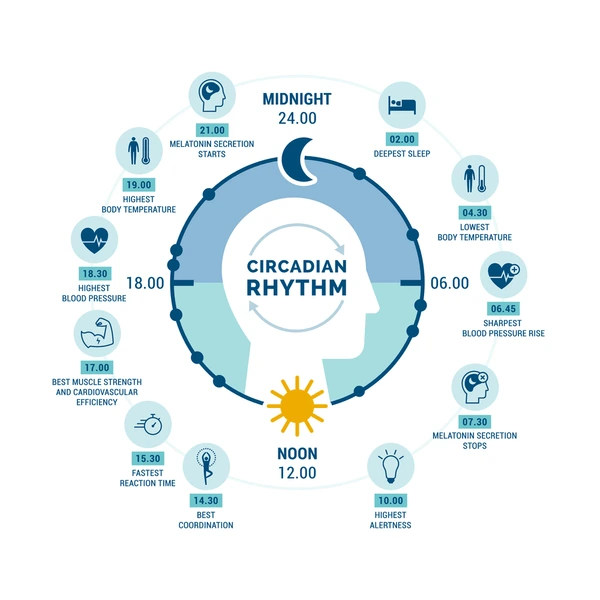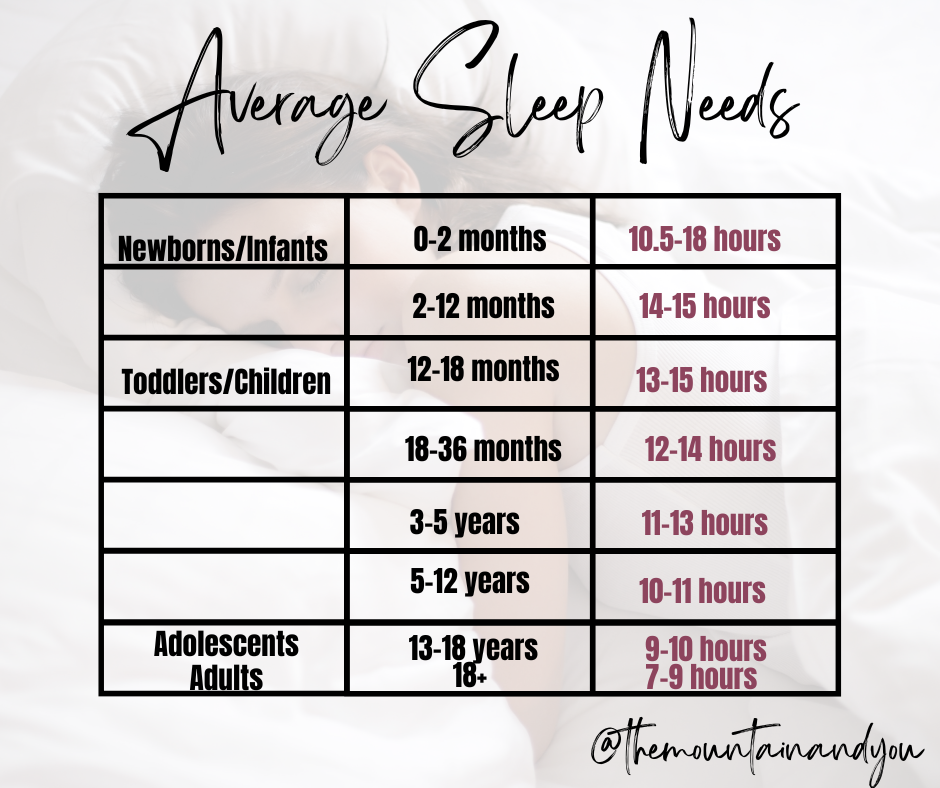
Sleep 💤
"Sleep is an investment in the energy you need to be effective tomorrow."
Sleep Statistics
- Adults need 7–9 hours of sleep per night for optimal health.
- About 35% of adults in the U.S. report getting less than 7 hours of sleep regularly.
- Nearly 50–70 million Americans suffer from sleep disorders like insomnia or sleep apnea.
- People who sleep less than 6 hours per night are 13% more likely to die earlier than those who get 7+ hours.
Effects of Sleep Deprivation:
- Reaction times slow down by up to 50% with just one night of bad sleep.
- Going 24 hours without sleep is comparable to having a blood alcohol level of 0.10% (above the legal driving limit).
- Sleep-deprived individuals are 30% more likely to be involved in a car accident.
- Short sleep (less than 6 hours) is linked to an increased risk of obesity, heart disease, and diabetes.
Work & Productivity:
- Lost sleep costs the U.S. economy an estimated $411 billion per year due to reduced productivity.
- Employees who get fewer than 6 hours of sleep are 2.4 times more likely to experience productivity loss.

Circadian Rhythm
Circadian rhythm is like your body’s natural clock that runs on a 24-hour cycle. It tells you when to wake up, feel alert, get hungry, and go to sleep. This internal clock is controlled by your brain and is influenced by things like light and darkness. For example, when it gets dark, your body releases a sleep hormone called melatonin, making you feel tired. When the sun comes up, your body wakes up and gets ready for the day. Keeping a regular sleep schedule helps keep your circadian rhythm balanced, so you feel well-rested and energized.

Maintaining a healthy circadian rhythm is all about keeping a consistent routine and aligning your body with natural light cycles. Here are some tips:
- Stick to a Consistent Sleep Schedule – Try to go to bed and wake up at the same time every day, even on weekends.
- Get Morning Sunlight – Natural light in the morning helps regulate your internal clock and boosts alertness.
- Limit Blue Light at Night – Reduce screen time (phones, tablets, TVs) at least an hour before bed to avoid disrupting melatonin production.
- Create a Relaxing Bedtime Routine – Engage in calming activities like reading, meditation, or stretching before sleep.
- Keep Your Bedroom Cool and Dark – A cool (60-67°F) and dark environment helps signal your body that it’s time to sleep.
- Avoid Caffeine and Heavy Meals Before Bed – Stimulants and large meals too close to bedtime can interfere with sleep quality.
- Stay Active During the Day – Regular exercise (preferably earlier in the day) helps regulate sleep patterns.
- Nap Wisely – If you need a nap, keep it under 30 minutes and avoid napping too late in the day.
- Manage Stress – High stress and anxiety can disrupt sleep, so relaxation techniques like deep breathing or journaling can help.
- Be Consistent – The more stable your routine, the better your body adapts to a healthy circadian rhythm.

Culturally, sleep has been pushed to the lower end of priorities as our other work/school/extracurricular activities have become #1. However, research has revealed to us, time and time again, that insufficient sleep significantly affects our performance and our overall health in many ways.
Take one small step this week to lay the groundwork for a week of better sleep. Your body and mind will thank you!
As always, if you need some help in this arena, you know where to find me 😉

